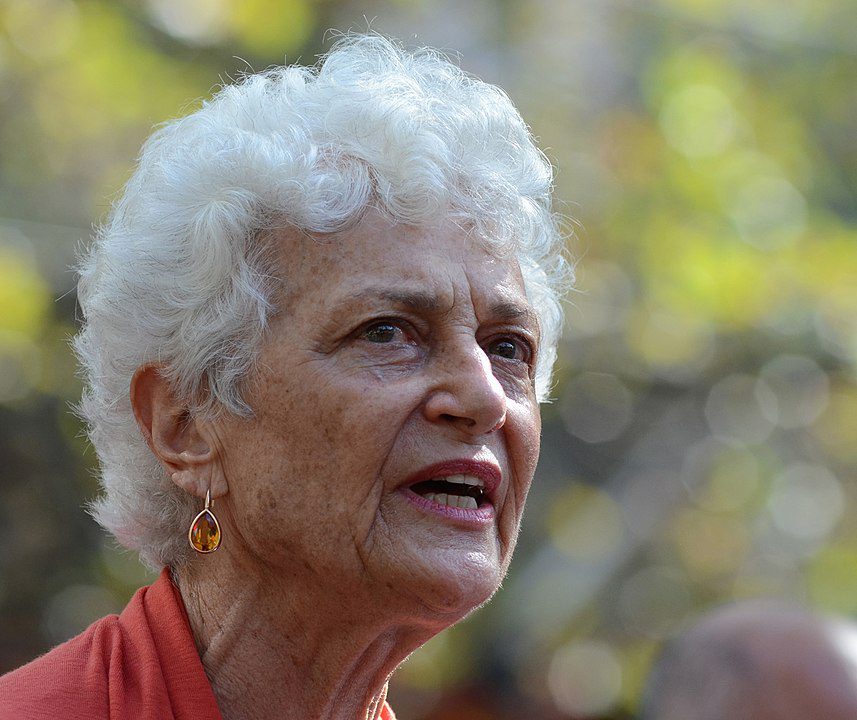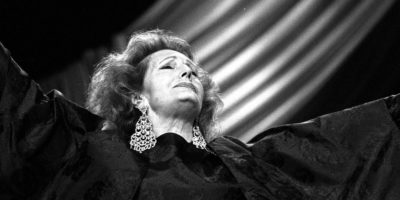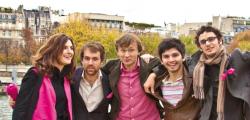
Fiona Stanley at March for Science by Mal Vickers – Wikimedia Commons
Top 10 Facts About Fiona Stanley
Fiona Juliet Stanley was born on August 1, 1946, in Little Bay, New South Wales. Growing up, Fiona loved reading about people such as Marie Curie. Professor Fiona Stanley is one of Australia’s most influential epidemiologists, largely recognized for her work in public health, her research into child and maternal health as impacted by the environment, as well as birth disorders such as cerebral palsy.
She is also the current UNICEF Australia Ambassador for Early Childhood Development. Renowned Australian research biologist Sir Gustav Nossal has been Fiona’s mentor throughout her career.
Below are the top ten interesting facts about Fiona Stanley:
1.Fiona’s Father, Professor Neville Stanley, Was One of Australia’s First Virologists
In 1956, about the time Fiona was turning 10, the Stanley family relocated to Perth where her father was the founding Professor of Microbiology at The University of Western Australia’s new School of Medicine. As one of the first virologists in Australia, Professor Neville was working to find a polio vaccine during the epidemics of the 1950s.
Through her father, Fiona met Jonas Salk, who developed one of the world’s first successful inactivated polio vaccines, and Albert Sabin, who developed the oral polio vaccine taken today. Her father’s work had a heavy influence on young Fiona who soon took interest in the field of medicine.
2.Fiona’s Parents Were Against Her Idea of Studying Medicine

Fiona at the summer torch olympics Australia by Peter Ellis – Wikimedia Commons
Growing up during her early years in Sydney, Professor Stanley aspired to sail out to undiscovered and remote islands, vaccinating populations to rid the world of disease. Unfortunately, studying in the mid-1960s, there still were not a lot of women going into medicine at the time.
Following this, Fiona’s parents advised her to study sciences or arts instead. However, she ignored their advice and enrolled into medicine without their permission when they were away on study leave. Professor Stanley was one of six female students in her class of 100 studying medicine at the University of Western Australia. Dr. Stanley completed her medical degree in 1970.
3.Her Experience Treating Sick Aboriginal Children Flown in From Remote Western Settlements in Perth Sparked an Interest in Epidemiology and Public Health
During her first job as a pediatrician at the Princess Margaret Hospital for Children, in Perth, Fiona and her colleagues traveled on missions to fringe-dwelling groups in Western Australia to treat the children and locals on health issues caused by their poor environment.
When an Aboriginal boy from the Western Desert died in the arms of the young Dr. Fiona at the Perth Children’s Hospital in 1971, the 25-year-old doctor figured she had to do something different in her career to help understand how the living conditions of these children impacted their health and life chances.
Following this new interest, Fiona spent six years in the United Kingdom, at the Social Medicine Unit at the London School of Hygiene & Tropical Medicine, and the United States studying and researching these areas before returning to Perth to establish research programs at the University and within the health department.
Her research and efforts led to part of the preceding trends in medicine where practitioners put more effort into the prevention of the causes of these health issues rather than waiting to treat the diseases.
4.Professor Fiona Stanley Discovered That a Diet Rich in Folic Acid During Pregnancy Can Prevent Neurological Tube Defects in Newborn Babies

Baby Bump by David Roseborough- Wikimedia Commons
Alongside Professor Carol Bower, Fiona Stanley made a landmark discovery in 1989, realizing the crucial link between a lack of folate in a mother’s diet and neurological tube defects such as spina bifida, anencephaly, and encephalocele in babies.
Besides her contributions to Indigenous child and maternal health in Western Australia, Professor Stanly is also widely recognized for her discovery that cerebral palsy may be caused by factors other than birth trauma alone, such as infections or blood incompatibilities.
5.Fiona Stanley Established the Telethon Institute for Child Health Research in 1990
Professor Stanley was the founding Director of the Telethon Kids Institute, established in Perth in 1990 in Subiaco, Western Australia. The institute is a multi-disciplinary research facility that investigates the causes and prevention of major childhood diseases and disabilities.
This nt excluding, Aboriginal health; asthma; allergy and respiratory disorders; bioinformatics; children’s cancer & leukemia; child development and wellbeing; datasets and cohort studies; diabetes; obesity and related disorders; disability and developmental disorders; drug discovery; environmental impacts on health; genetic impacts on health; impacts on policy and practice; infectious disease; mental health; and pregnancy and maternal health.
6.The Fiona Stanley Hospital Opened in 2014 is Named in Her Honor

The Fiona Stanley Hospital by Gnangara – Wikimedia Commons
Following her award as the Australian of the Year, Fiona Stanley Hospital was opened in Murdoch, and named after the eminent Western Australian doctor. Developed as a result of the 2004 Reid Report which set out a clear direction for the Western Australian public health system for the next decade and beyond, the Fiona Stanley Hospital grew to be one of the best in Australia.
The hospital has grown to be a leader in clinical care, research, and education, supported by an innovative design that uses the latest scientific, technological, and medical developments. In November 2010, Fiona Stanley Hospital won the WA Environment Award in the Government Leading by Example category.
7.Fiona Stanley’s Achievements Have Been Recognized With Several Awards and Honors
Professor Stanley’s accolades and accomplishments during her 50-year career are too long to list. She was named a Companion of the Order of Australia in 1996, received a Centenary Medal in 2001, was 2003 Australian of the year, and was honored as a national living treasure by the National Trust in 2004. Her image has also been featured on Australian stamps and she was an Olympic torch bearer in 2008.
8.Professor Stanley Has More Than 300 Published Papers in Scientific Journals
Fiona has a Commitment to Improving Health as a Means to Improving Social Justice.She has also served on the Prime Minister’s Science, Engineering and Innovation Council, the Federal Government’s Social Inclusion Board and the WA State Government’s Indigenous Implementation Board.
She has given many presentations, both nationally and internationally, on the socio-economic determinants of child health.
9.Professor Stanley Retired in 2011 But Remains Committed To Several Important Roles
On her retirement, Professor Stanley graciously accepted an invitation from the Board of the Telethon Kids Institute to take on the position of Patron. Professor Stanley remains a Chief Investigator on several research grants at the Telethon Kids Institute, continues to advocate for the Institute, research, and families, and is a valued mentor to many.
She also continues her strong association with the University of Western Australia as a Distinguished Research Professor in the School of Paediatrics and Child Health; Vice Chancellor’s Fellow, University of Melbourne; and Chair of the newly-formed Alcohol Advertising Review Board.
10.Fiona Stanley Married Geoffrey Shellam

Wedding Ring by Jeff Belmonte – Wikimedia Commons
Geofferey Shellam later became the the chair of microbiology a position that was once occupied by Fiona’sfather. Together they have two daughters. However, Geoffrey Shellam who was also a Professor of the School of Pathology and Laboratory Medicine at UWA, and Co-Director of The Marshall Centre for Infectious Diseases Research and Training, passed away at the age of 71.
Planning a trip to Paris ? Get ready !
These are Amazon’s best-selling travel products that you may need for coming to Paris.
Bookstore
- The best travel book : Rick Steves – Paris 2023 – Learn more here
- Fodor’s Paris 2024 – Learn more here
Travel Gear
- Venture Pal Lightweight Backpack – Learn more here
- Samsonite Winfield 2 28″ Luggage – Learn more here
- Swig Savvy’s Stainless Steel Insulated Water Bottle – Learn more here
Check Amazon’s best-seller list for the most popular travel accessories. We sometimes read this list just to find out what new travel products people are buying.










